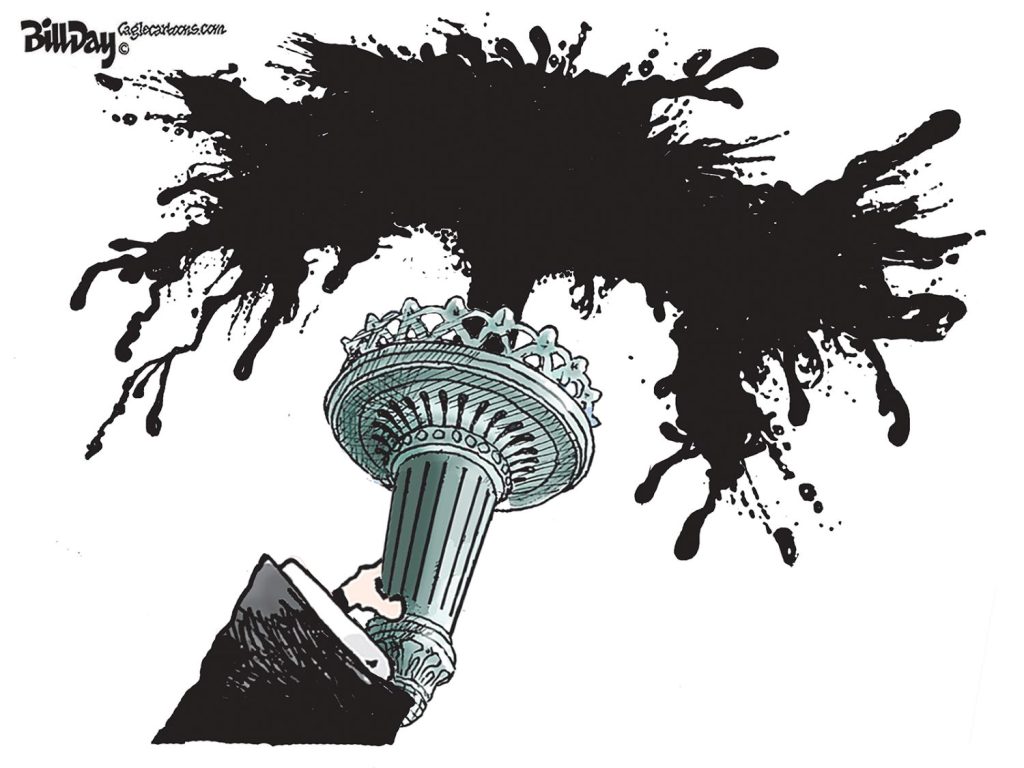| THE COMMERCIAL APPEAL
|
| WEDNESDAY, April 24, 1996
|
| COUNTY-ONLY SCHOOL ELECTION ON AGENDA COMMISSION TO CONSIDER PLAN EXCLUDING CITY VOTERS
|
A plan for an August election of Shelby County school board members from seven districts drawn entirely outside Memphis is scheduled to be considered by a County Commission committee on Friday and the full commission on Monday.
”I believe the votes will be there to pass it, ” Commissioner Bill Gibbons, a sponsor of the measure, said Tuesday.
The qualifying deadline for the Aug. 1 general election is May 16, and Gibbons said the commission needs to act at Monday’s meeting.
Gibbons and Commissioner Mark Norris, another sponsor, said they believe a 1995 federal appeals court ruling in a Coffee County, Tenn., school board case makes it clear that including Memphis voters in a county board election would violate the U.S. Constitution.
State courts have interpreted the Tennessee Constitution as requiring that all county school board elections be countywide, even though some cities in a county might have their own school systems. Memphis has its own school system.
The Gibbons-Norris election plan would direct the county attorney to seek a court ruling excluding Memphis voters.
The commission’s education committee, headed by Gibbons, is to consider the plan at 3 p.m. Friday in the commission’s sixth-floor conference room in the Shelby County Administration Building. The full commission meets at 1:30 p.m. Monday.
The Coffee County ruling did not prohibit Tullahoma residents from voting in county school board elections, but the judges found that the city was small compared to the county as a whole and that some county property tax money collected in the city went to the county schools.
However, in cases where a city’s voters would dominate county board elections and where taxes collected in a city do not go to the county system, the judges indicated they would exclude city voters. Gibbons, Norris and Lee Winchester, county school board attorney, said Memphis voters would dominate a board election here and that property tax funds flow from the county areas to the city rather than city to county.
A controversy over the Shelby County school board election developed after the passage of a 1992 state law requiring all Tennessee school boards to be elected by the people. The board here has been appointed by the County Commission.
Including Memphis voters in the election has split the commission along racial lines. White commissioners say it would be unfair for city voters to elect a majority of the board members who would run county schools, while black commissioners say the state law mandates that city voters be included.
The county’s suburban mayors and the current county school board have been pushing strongly for development of a plan to limit board elections to the county outside Memphis. The Gibbons-Norris proposal is similar to a proposal adopted by the county school board.
Commission chairman Julian Bolton, a strong advocate of including Memphis voters, said he is disappointed by the Gibbons-Norris proposal.
”It is just going to lead to more court fights, ” Bolton said. ”I don’t think it (the plan to exclude Memphis voters) is going to come to a successful end regardless of what the vote is Friday or Monday. It just exacerbates the whole school issue when commissioners try to skirt the law and the Constitution.”
Gibbons said the election plan meets legal requirements and is at the same time fair to county residents.
”I think it is only fair to allow both school boards to be elected by the voters served by those boards, ” he said.
Norris said, ”I think it (the plan) is the right thing to do. It goes a long way toward preserving the Shelby County school system under the law.”
As a result of the population makeup of the county outside Memphis, all seven of the proposed districts would be majority white. The black percentages would range from 1.8 to 23.7. About 20 percent of the students in the county system are black. Black residents made up 11.7 percent of the county area’s population at the time of the 1990 Census.
Since the 1960s, the appointed seven-member board has had two and, at one point, three black members. Norris said he did not believe the population makeup of the districts would impede the election of black board members



Maybe if the county pay their city backtaxes, we could do it. No vote till the check is cashed though.